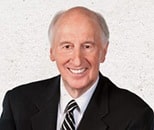The Challenge of Anchoring the Charismatic Experience in Biblical Truth
“Kingdom Now,” “Demons and Deliverance,” “Prophets and Prophecy,” “Signs and Wonders,” “Confessing the Word,” “Healing and Prosperity” – these are just half a dozen of the emphases that sporadically ricochet through the charismatic movement. They delight proponents, dismay critics and provide fodder for innumerable questions and fiery suppositions. They also create serious concerns.
Those concerned generally point to a theological imbalance that many charismatics either fail to recognize or choose to accept as normative or even desirable. “It’s as though large segments of the charismatic movement are either indifferent to or unaware of the theological thin ice on which they skate,” one classical Pentecostal leader observed.
Both traditional evangelicals and supportive insiders from the Pentecostal/charismatic community are hoping that the blessing and spiritual advances being realized by advocates of these special emphases will seek to ground their teaching biblically. This doesn’t mean, as some charismatics fear, to ground in the sense of penalizing a careless pilot or punishing a reckless teenager. Rather, it means to ground in the sense of securing or adjusting certain teachings to more solid scriptural foundations—and to do so with a sensible perspective on history’s lessons, while insisting on solid ethics and practical holiness.
This appeal reflects a delicate tension between two realities, one affirmative and the other negative.
First, charismatic life abounds in vital New Testament living, joyous service and surging evangelistic impact. Convinced of the present power of God’s promises, many charismatics make faithful applications of the truth they hold and enter the marketplace of human experience with it. Objective non-charismatics agree that the vibrancy of charismatic meetings is not all “fluff.” They especially welcome the evidence of practical evangelistic impact made in many parts of the world where first-century faith with signs, wonders and transforming power are being displayed.
At the same time, however, we must note that the apparent absence of concern for biblical and theological substance that supports many charismatics’ practices cause observers to suspect the durability of such dynamism. Towers of practical truth rise splendidly, as people are healed, faith is made practical, demon power is broken and the glory of Christ’s kingdom is seen in flashes of momentary splendor. But amid the blessing, we find too seldom the ministry and practices secured on biblical footings. Balance seems to concern only a few, as participants revel in the thrill of God’s power.
Christians practicing certain emphases, such as those we first listed, seem each to have discovered a pillar of New Testament power, as though a theological “archeologist” has found out something about ancient church history. But now that these towering artifacts of functional truth appear to have been recovered, their discoverers haven’t yet uncovered the broad biblical and historical foundations that should lie beneath them. How can this be done?
A good beginning would be to trust more readily the intentions of sympathetic critics. Rather than judging appeals to greater carefulness in theology as a threat to our style or liberty, we might listen to them.
More and more, inquiries by our critics reflect a hunger—a desire to find out how to advance the spread of Bible-based, Spirit-filled renewal. They request a more clearly rooted theology so that the dynamics charismatics enjoy might be more broadly understood, received and applied. But too often the response of charismatic leaders and congregations, who have been burned by past criticism, is outright rejection of such suggestions. Part of the challenge before us is to cultivate a new tolerance and wisdom toward those who question us.
Listen to the Echoes of History
Church history flashes many warning signals about the penalties of extremism. We are not immune to such penalties, so we must resist the common ploy of mocking those who question us, reacting in kind to antagonists. Instead, we can learn from history.
Often it seems that groups with little knowledge of church history mistakenly suppose they are the sole discerner or recoverer of a given truth or practice. Pride and presumption enter subtly, confusion distracts and moves them off course, and often shipwreck results. A pillar, intended for raising up, crashes down instead—and the dust blinds the eyes of all who hoped to see its design and gain the strength of its support.
How can we gain without losing?
First, we must avoid the idea that supposes theology is arthritic or that history is a waste of time. We must take time to investigate the church’s history. We must bother to examine the theological implications of our experiences. If our experiences truly verify the Word, they’ll fit into sound theology. Remember, vital revivalists and reformers of church history—such as Luther, Wesley and Finney—were not theological wimps. Both distant and recent church history reminds us of the folly of freewheeling revelation without foundation.
Listen to the Voice of the Scriptures
No doubt each emphasis that has risen within the charismatic movement has some biblical claim for its thrust—whether, faith, signs, prophecy, deliverance, discipleship or whatever. But charismatic Bible interpretation exhibits a general propensity for looseness, an inclination to strain the limits of God’s “sure Word.” This frightens many Christian leaders who, while welcoming the refreshing that some of these emphases introduce, deeply regret the casual disregard of Scripture by some who claim “revelation” or “prophetic insight” as conclusive or authoritative of their teachings. Without a will to bend our private “revelations” to the plumb line of the Word, trouble is certain.
Protection against such error is assured when we don’t insist on supporting our own insights or emphases with selected proof texts. We must remain willing to accept honest inquiry into apparent weaknesses in our systems of doctrine. To do otherwise is to chart a path to short-lived spirituality.
Not Just Leaders
Meanwhile, the problems we’re describing aren’t limited to charismatic leaders and teachers. Most people tasting the Holy Spirit’s new wine show little interest in the relative durability of what they’re experiencing. Yet disillusion, division and disintegration occur when people disregard the wisdom of building strong foundations.
Sad to say, the practice of many charismatics is to “hitch their wagon to a star” rather than to anchor to the solid base of long-term growth in a trustworthy fellowship. Many pursue itinerant prophetic and healing ministries while neglecting steadfast, accountable commitment to the disciplines of continuity in a local, faithfully pastured congregation. The pastor may not be as exciting a personality as the more visible, eloquent or miracle-graced traveling preacher. But after the more mobile minister has left town, that pastor is the one to be counted on when believers face the tough realities of daily Christian living.
Countless scat-about, undisciplined believers “come for the show but refuse to grow.” Everywhere we see shallowness, unaccountability and a neglect of balancing wisdom. So where can we find the wisdom we need?
Listen to the Heartbeat of the Cross
I believe that the charismatic movement must chart a fresh course to the central point of Christian truth: the cross of Jesus. The remedy for any imbalance is precisely there, where those two crossbars remind us of the need to balance heaven’s requirements (vertical) and human need (horizontal).
We certainly want to retain the vitality of our charismatic experiences, which ought not to be questioned simply because they are experiences. Like the arms of Jesus extended in saving, healing and delivering power on the cross, the charismatic approach in ministry that expects God to act in the now results in vital experience. This is a charismatic hallmark and a righteous goal.
Nevertheless, the cross not only reaches out with life and power, it also stands with authority and stability. It is at the vertical crossbar that we align with Christ’s head and His feet—majestic symbols of His Lordship and His dominion. Too often charismatics lay claim to the cross’s authority for ministry while either forgetting or minimizing the authority of that cross over us.
One recent study of the content of most charismatic worship music indicated that both Christ’s cross and His blood are scarcely mentioned. Does this drift from the biblical and historic center of Christian faith signal a warning? I think so. It’s hard to synchronize this tendency with the theme song of heaven, both now and eternally: “To Him (the Lamb) who loved us and washed us form our sins in His own blood” (Rev. 1:5; see also 5:9).
The cross must command center stage in our lives, ever and always; and as participants in this revival, let us be certain it does in the charismatic movement as well. The cross is the fountainhead of all God’s wisdom, as well as the source of all His power (I Cor. 1:18-25; 2:1-40).
Let’s start signing again, “Jesus, keep me near the cross.” Humility is assured there, which will keep arrogance and pride from gaining ascendancy. Holiness is assured there, which will keep presumption and ungodliness at bay. Love abounds there, which will help us to hear each other and to keep the teachable heart of a child. Finally, the power is there, for the fountainhead of all Christ’s glory-workings toward all humankind was opened there. We must keep that fountainhead as our foundation—resting all our revelations and blessings on the footing Calvary provides.






